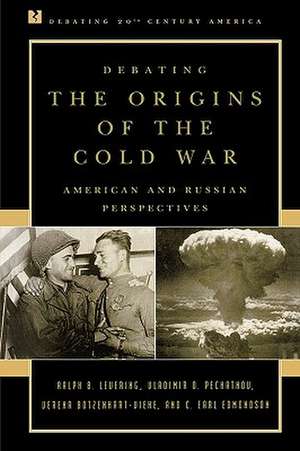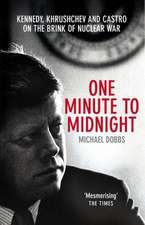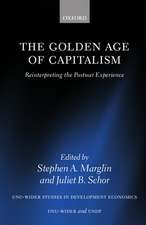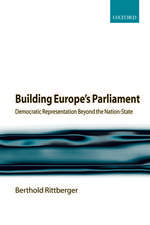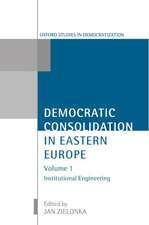Debating the Origins of the Cold War: Debating Twentieth-Century America
Autor Ralph B. Levering, Vladimir O. Pechatnov, Verena Botzenhart-Viehe, Earl C. Edmondsonen Limba Engleză Paperback – 25 mar 2002
Preț: 314.65 lei
Nou
Puncte Express: 472
Preț estimativ în valută:
60.22€ • 62.63$ • 49.71£
60.22€ • 62.63$ • 49.71£
Carte tipărită la comandă
Livrare economică 14-28 aprilie
Preluare comenzi: 021 569.72.76
Specificații
ISBN-13: 9780847694082
ISBN-10: 0847694089
Pagini: 208
Dimensiuni: 150 x 226 x 18 mm
Greutate: 0.34 kg
Ediția:0208
Editura: Rowman & Littlefield
Seria Debating Twentieth-Century America
ISBN-10: 0847694089
Pagini: 208
Dimensiuni: 150 x 226 x 18 mm
Greutate: 0.34 kg
Ediția:0208
Editura: Rowman & Littlefield
Seria Debating Twentieth-Century America
Cuprins
Part 1 Part I: The American Perspective Chapter 2 The Atlantic Charter, August 14, 1941 Chapter 3 Comment on the Results of the Decisions Made at the Yalta Conference Chapter 4 Secretary of State James Byrne's Speech in Stuttgart on Germany's Future, September 6, 1946 Chapter 5 Speech by J. Edgar Hoover, Director, Federal Bureau of Investigations, at the Annual Convention of the American Legion in San Francisco, September 30, 1946 Chapter 6 George K. Kennan's Long Telegram, February 1946 Chapter 7 Henry A. Wallace's Speech in New York City, September 12, 1946 Part 8 Part II: The Russian Perspective Chapter 9 Stalin to Politburo Four (Vyacheslav Molotov, Lavrenti Beria, Mikoyan, and Malenkov), Ciphered Telegram, December 9, 1945 Chapter 10 A Compilation of [Written] Comments on Draft Treaties Regarding Demilitarization and Disarmament of Germany and Japan Proposed by [U.S. Secretary of State James] Byrnes Chapter 11 The Minister of State Security Appeals for Measures to Close Down British Propaganda in the U.S.S.R. Chapter 12 President Harry S. Truman's Speech to Congress, March 12, 1947 Chapter 13 Instructions for the Soviet Delegation to the Meeting of Foreign Ministers in Paris, June 25, 1947 Chapter 14 Record of J[osef]. V[issarionivich]. Stalin's Conversation with the Czechoslovak Government Delegation on the Issue of Their Position Regarding the Marshall Plan and the Prospects for Economic Cooperation with the U.S.S.R. Chapter 15 Record of the Meeting of Comrade J[osef]. V[issarionivich]. Stalin with the Secretary of the Central Committee of the French Communist Party [Maurice] Thorez Chapter 16 Report by L. P. Beria and I. V. Kurchatov to J. V. Stalin on Preliminary Data Received during the Atomic Bomb Test Chapter 17 The [Nikolai] Novikov Report [Telegram]
Notă biografică
Descriere
In two essays, the authors demonstrate that a huge gap existed between the democratic, capitalist and global vision of the post-World War II peace that most Americans believed in and the dictatorial, xenophobic and regional approach that characterized Soviet policies.
